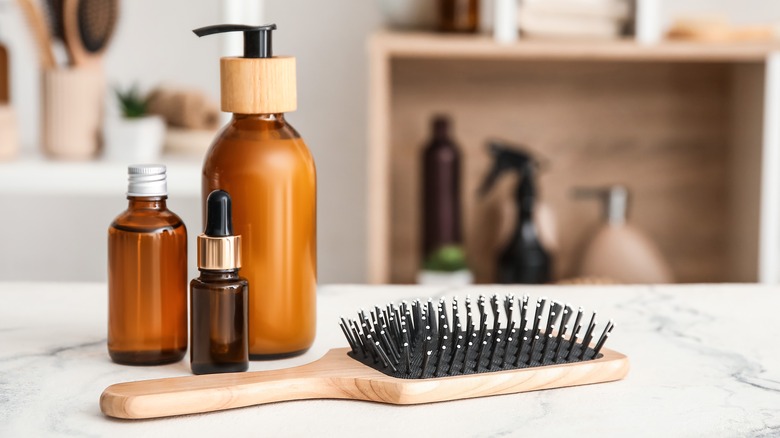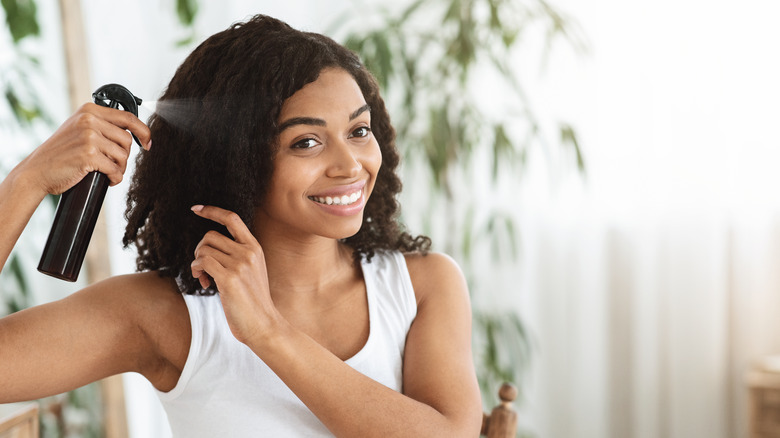Why A Popular Beauty Product May Increase Your Risk Of Uterine Cancer
As beauty enthusiasts, we've come to expect that when Hailey Bieber posts a 10-step skincare routine, the products she used will almost immediately find themselves in aggressive targeted ads, multiple shopping carts, and drugstore aisles. Predictably, these products will sell out. But this mass-buying may point to how consumers are ready to emulate Bieber without checking ingredients, side effects, and with their doctors. The beauty industry takes its cues from runways, TikToks, and aesthetics: many of these are purely trend-based that are often influenced by the reigning beauty standard. The result is problematic buying behaviors that aren't informed.
Products in the beauty industry are regulated by the FDA in the U.S. and are under the category 'cosmetics.' We, generally, assume that everything on our vanities is safe and tested. However, these products don't need to be FDA-approved. "There are currently no legal requirements for any cosmetic manufacturer marketing products to American consumers to test their products for safety," former FDA Commissioner Scott Gottlieb attested. This means that it's up to us to wade through the highly carcinogenic market of lipsticks and eyeshadows and make a conscious purchase.
Recently, a long-term study revealed that a popular hair care product has been linked to increasing the risk of uterine cancer, and this product may disproportionately impact some populations more than others.
Black women are more likely to be impacted by this hair product
According to a study conducted by the National Institute of Health, women who used chemical hair straightening products were more likely to develop uterine cancer. "We estimated that 1.64% of women who never used hair straighteners would go on to develop uterine cancer by the age of 70; but for frequent users, that risk goes up to 4.05%," said Alexandra White, Ph.D., the lead author on the study. "This doubling rate is concerning. However, it is important to put this information into context — uterine cancer is a relatively rare type of cancer," White continued.
The study was conducted on 33,497 U.S. women, over an 11-year period, and almost 60% of the participants who were diagnosed with uterine cancer in that time period were Black. "Because Black women use hair straightening or relaxer products more frequently and tend to initiate use at earlier ages than other races and ethnicities, these findings may be even more relevant for them," said Che-Jung Chang, Ph.D., an author on the new study.
While this study didn't look at specific ingredients, there are known carcinogens — like formaldehyde — that may be the culprit. Although FDA scientists have declared hair straighteners with formaldehyde unsafe since 2016, no ban has taken place (via The New York Times). Ultimately, this is a preliminary study and White said there's more research needed to confirm the research and "to identify the specific chemicals that may be increasing the risk of cancers in women."

